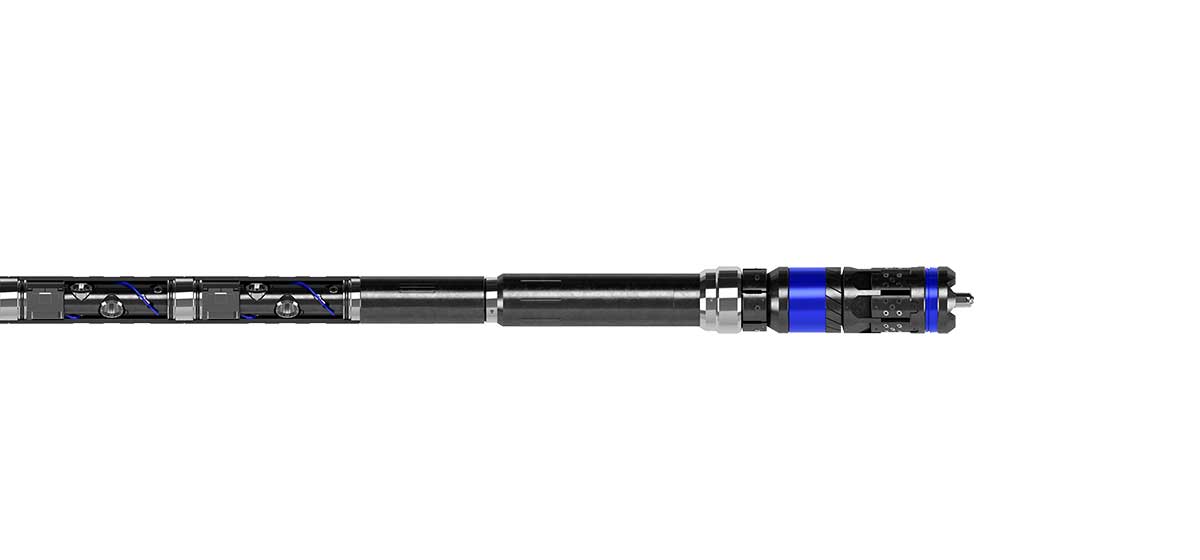KickStart
Rupture disc valve
Eliminate coiled tubing– or tubing-conveyed perforating in the first frac stage, saving money and time.

Reduce diesel consumption by more than 5,700 L per 50-stage well by eliminating coiled tubing milling
Reduce CO2e emissions by 31,000 kg by using 100 dissolvable plugs instead of 100 composite plugs
ReacXion fully dissolvable frac plugs easily dissolve in the presence of common wellbore fluids after fracturing is complete, considerably simplifying cleanout operations (by eliminating milling) and reducing time to production. The time savings result in reduced diesel consumption and hence, lower CO2e emissions. These plugs are full casing weight spanning and have a higher temperature rating than other SLB dissolvable frac plugs.
The ReacXion frac plug represents a fusion of the advanced anchoring features—independent slips and crumple-zone technology—from the ReacXion Nano™ compact fully dissolvable frac plug and the larger sealing element and split ring backup from the ReacXion Slim™ high-expansion fully dissolvable frac plug. The result is a more robust product that is better equipped to handle nonuniform casings and higher temperatures. You also have greater flexibility at the wellsite because the same plug can be used in ball-drop or ball-in-place modes. These frac plugs can be delivered preassembled with a Unity™ integrated frac plug and perf gun system to eliminate the potential for human error and operational delays. An optional pumpdown ring improves fluid efficiencies, providing additional time and cost savings.
ReacXion fully dissolvable frac plugs require only minimal field assembly or can be delivered preassembled with a Unity integrated frac plug and perf gun system to eliminate the potential for human error and operational delays. An antipreset design eliminates the risk of presetting while pumping into the well.
Load-transfer technology integrated into the frac plug design uses the casing as a supporting member, transferring the load from the ball to the ball seat, through the slips, and onto the casing. Pressure exerted on the ball during stimulation continues to reinforce the integrity of the plug’s seal, forming a tighter seal as pressure is increased.
ReacXion frac plugs are smaller by volume than third-party dissolvable frac plugs, accelerating dissolution. Their field-proven materials ensure that they dissolve fully and predictably in freshwater or common oilfield brines, depending on the version selected. Improved material selection also enables fast, controlled dissolution of the elastomer.
A proprietary field-proven coating protects the frac plug and prevents early dissolution, enabling plug placement in the well several hours before isolation is required. To complete isolation, a dissolvable ball is pumped down to the integral ball seat before fracturing begins, or the plug can be deployed with the ball in place.

Learn more about how our Unity™ integrated frac plug and perf gun system can help you accelerate rig-up, reduce risk, and improve reliability.
Tell me moreThe content of this publication has not been approved by the United Nations and does not reflect the views of the United Nations or its officials or Member States.